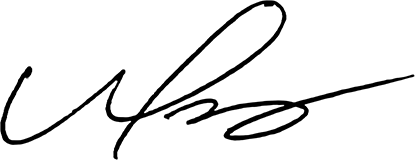In a world of endless to-do lists, overflowing inboxes, and constant distractions, productivity can feel like a mythical superpower. But what if you could accomplish more without burning out? The secret lies in working smarter, not harder.
Backed by neuroscience, psychology, and real-world research, these 10 strategies will help you reclaim focus, eliminate time-wasters, and achieve your goals efficiently. Let’s dive in!
1. Master the Art of Time Blocking
Your brain thrives on structure. Time blocking—scheduling specific tasks into dedicated time slots—reduces decision fatigue and keeps you on track. Studies show that people who plan their day in advance are 33% more likely to report high productivity.
Try this: Use a digital calendar or planner to assign blocks for deep work, meetings, and breaks. Start with 90-minute focused intervals followed by 15-minute rest periods.
2. Leverage the “Pomodoro Technique”
Short bursts of focus beat marathon sessions. The Pomodoro Technique, developed by Francesco Cirillo, involves 25 minutes of concentrated work followed by a 5-minute break. After four cycles, take a longer break (15–30 minutes).
Why it works: This method aligns with your brain’s natural attention span, preventing burnout and maintaining mental clarity.
3. Prioritize Ruthlessly with the Eisenhower Matrix
Not all tasks are created equal. Use the Eisenhower Matrix to categorize tasks by urgency and importance:
- Do First (Urgent + Important)
- Schedule (Important, Not Urgent)
- Delegate (Urgent, Not Important)
- Eliminate (Neither).
This framework, popularized by President Dwight D. Eisenhower, ensures you invest energy where it matters most.
4. Embrace the Power of “Deep Work”
Cal Newport, author of Deep Work, defines this as “the ability to focus without distraction on a cognitively demanding task.” Research shows that uninterrupted focus can double (or triple) your output.
Pro tip: Silence notifications, close unnecessary tabs, and communicate “do not disturb” hours to colleagues.
5. Take Strategic Breaks
Contrary to hustle culture, breaks enhance productivity. A 2021 study found that workers who took regular 5-minute walks reported higher focus and creativity.
Best break activities:
- Stretch or walk outside (natural light boosts alertness).
- Meditate or practice deep breathing.
- Hydrate—even mild dehydration impairs cognition.
6. Optimize Your Environment
Your workspace impacts performance. A Cornell University study linked clutter to increased stress and reduced efficiency. Meanwhile, natural elements (like plants or sunlight) improve mood and focus.
Quick fixes:
- Organize your desk daily.
- Use noise-canceling headphones in open offices.
- Adjust lighting to reduce eye strain.
7. Harness the “Two-Minute Rule”
From David Allen’s Getting Things Done: If a task takes less than two minutes, do it immediately. Responding to a quick email or filing a document now prevents small tasks from piling up into overwhelming mental clutter.
8. Practice “Single-Tasking”
Multitasking is a myth. Stanford researchers found that heavy multitaskers perform worse because constant task-switching depletes mental resources.
Solution: Batch similar tasks (e.g., replying to emails in one window) and commit to one priority at a time.
9. Set “SMART” Goals
Vague goals like “work harder” lead to frustration. SMART goals are Specific, Measurable, Achievable, Relevant, and Time-bound. For example:
- ❌ “Write more.”
- ✅ “Draft 500 words of the report by 11 AM Thursday.”
Breaking projects into smaller milestones builds momentum and clarity.
10. Reflect and Iterate
Productivity isn’t one-size-fits-all. End each week with a 10-minute review:
- What worked well?
- Where did you get stuck?
- What can you adjust next week?
This habit, backed by Harvard Business School research, fosters continuous improvement.
Putting It All Together
Productivity isn’t about squeezing every minute out of the day—it’s about aligning your habits with how your brain naturally operates. Start with one or two strategies (like time blocking or the Pomodoro Technique) and gradually incorporate others.
Remember: Rest is not the enemy of productivity. Sleep, hobbies, and downtime recharge your brain, making you more effective in the long run.
Your Turn: Which strategy will you try first? Share your favorite productivity hack in the comments!



